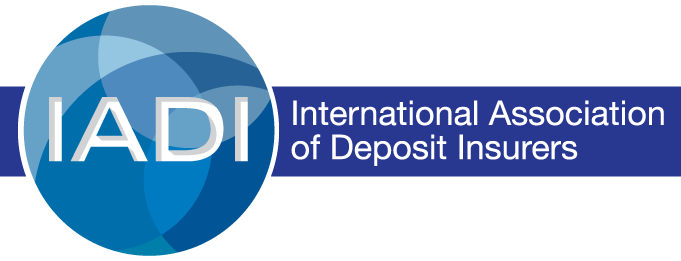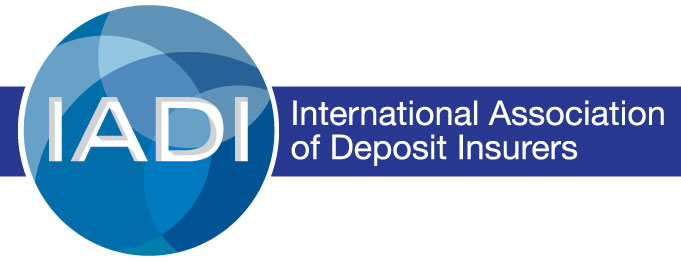Navigating the evolving Financial Landscape: Emerging Challenges for Deposit Insurers and the Significance of Crisis Preparedness
Good morning, everyone.
I am very pleased to speak to you and welcome you at the IADI Asia-Pacific Regional Committee International Conference in Jaipur.
I would like to express my sincere gratitude to the Deposit Insurance and Credit Guarantee Corporation of India, who is kindly organising and hosting this event and to its Chairman Mr. Patra. Let me also extend my greetings to APRC Chair Governor Mitsui from DICJ Japan.
I would like to express special appreciation to the Governor and other representatives of the Reserve Bank of India. Deposit insurance is an integral part of the wider financial safety net and as such, an ongoing exchange with other safety net participants such as Central Banks is of utmost importance to protect depositors and safeguard the stability of the financial system.
Unfortunately, due to conflicting commitments, I cannot be with all of you in Jaipur today. Nevertheless, I am grateful for the opportunity to speak to you virtually today. India and the entire Asia Pacific Region have demonstrated a strong commitment within the IADI community.
The city of Jaipur and indeed the country of India as a booming Fintech cluster, are ideal locations to discuss the emerging challenges for deposit insurers in an ever-evolving financial landscape. Jaipur is not only a UNESCO World Heritage Site, but it is widely known to be an exceptionally interesting case of city planning and construction in South Asia. Its architectural design is an excellent example of how to make the best use of different traditions ranging from ancient Hindu, Mughal and Western spheres and how to adopt them for use that fits the local needs.
In a way, the setting of this International Conference in the historic city of Jaipur, but also in the wider, vibrant and very digital environment that India represents, is particularly symbolic for the situation in which IADI finds itself these days.
As you may know, IADI has first issued the Core Principles for Effective Deposit Insurance systems in 2009, following the Great Financial Crisis in 2008. Profiting from an FSB-conducted peer review, IADI later revised the Core Principles in 2014. In setting out the Core Principles, the IADI members opted for an approach that takes account of the diversity of our membership in term of the composition and development of their banking sectors while at the same time delivering on the need to protect depositors and safeguard financial stability.
I believe it is fair to say that this has been a success story. The IADI Core Principles for Effective Deposit Insurance Systems have grown to become the global benchmark for deposit insurance. Similar to Jaipur increasingly attracting a growing number of visitors, IADI has attracted a growing number of members. Starting from 25 founding members in 2022, IADI now has 98 member deposit insurers.
However, just as the traditional city of Jaipur is located in the large, dynamic and digital nation of India; the IADI Core Principles operate in a dynamic environment where the business of banking and deposit taking is subject to continuous and mutually interdependent changes in technology and customer behaviour.
As an international standard-setter, it is important that we embrace this situation. Many of the technological innovations in banking offer sizeable benefits to customers, be it in terms of cost savings or in terms of ease of use. And innovations that offer such benefits are likely to grow in relevance over time, and to a wider public. As deposit insurers, we cannot afford to ignore these evolutions. The events of March last year, with the very large and fast digital bank runs at Silicon Valley Bank and Signature Bank are a perfect showcase of the relevance of digital technology to our public policy objectives.
It is very important for our Association and the wider financial safety-net community to stay abreast of technological innovation. We must at all times devote sufficient time and resources to identify emerging trends and technologies and endeavour to understand if and how these may impact banks and their funding by deposits. I would like to add that they may also impact non-banks, whose activities may not necessarily be regulated and supervised to the same degree, but whose failure may nevertheless have a significant impact on the financial sector, and hence on us as deposit insurers. Within the IADI Analysis and Policy Council Committees and their Technical Subcommittees and Working Groups, considerable attention is devoted to these developments, be it in the areas of private currencies, artificial intelligence or payments, such as e-money.
The agenda of this event in Jaipur covers matters including tokenised deposits and digital currencies and reflects exactly this necessity. I very much applaud the organisers and hosts for choosing those topics for the agenda and thereby helping progress our work in this area.
Tokenised deposits may be a very relevant example of such work. These deposits can well be programmable in the future and their transfer can be made contingent on certain conditions. The impact of these new financial products on the liquidity management by banks and the volatility of funding by deposits is not evident and much remains to be learned here.
Now, it is one thing to identify emerging technologies and challenges and to understand their potential impact on banking, financial stability and deposit insurance. Equally important and building upon this work as a next logical step, is to react to it as an international standard-setter.
This is highly relevant to IADI and I will come to that in a minute when speaking about our ongoing Core Principles Review.
Before doing so, I would like to stress the importance of regulation and supervision in an environment of intense digital innovation. The benefits of tokenised deposits and private currencies are more likely to materialise when surrounded by a regulatory framework that allows for flexibility where required to support innovation, but restricts this flexibility where necessary to safeguard financial stability. The regulation and supervision of tokenised, public and private digital currencies is a topic of fundamental interest to the international community of deposit insurers as it inevitably raises the question of whether and if so under what conditions deposit insurance should extend to such instruments. Such questions may require international coordination, to which IADI is willing to contribute.
Now, on the very field of deposit insurance, as you may now, IADI is currently in the process of reviewing and updating its Core Principles. There is agreement that the Core Principle review will focus on the following four key areas:
- First, to promote a holistic view of the financial safety-net and stress the need for effective interaction of deposit insurers with other components of the safety-net reflecting lessons learned from the banking turmoil in 2023;
- Second, to clarify the interaction between deposit insurance systems and resolution frameworks. This will contribute to effectively deliver on our public policy objectives while acknowledging the variety of mandates and institutional arrangements;
- Third, to strengthen the Core Principles by including forward looking and aspirational elements, recognising that deposit insurance systems need to be dynamic and evolutionary. Focus areas of consideration here include differential premium systems, the replenishment of deposit insurance funds, the speed of reimbursement and data access rights for deposit insurers;
- The fourth area of focus in reviewing the Core Principles aims at future-proofing the application of the Core Principles in a rapidly evolving technological environment which may also impact on the nature of deposits.
As we speak, an intensive review process of review is ongoing, which takes aboard our Members’ technical expertise as well. As per our timeline, we aim at launching a public consultation process following the November Annual General Meeting in Tokyo.
During that public consultation, an intensive outreach through the IADI Regional Committees and stakeholder meetings will take place, as will engagement with standard-setting bodies and international financial institutions. If all goes well, we should be able to finalise the Core Principle Review in 2025.
Allow me to come to a close and let me stress that I view this review as an occasion to enhance the IADI reputation as a global standard setting body. We are open to paving our own path that focusses on strengthening deposit insurance systems around the world and contributing to financial stability both in the world as we know it today, and in the future, more digital world.
I am confident that the discussions at this conference will be an important input to this work. I thank you very much for your attention, and I wish you insightful and though-provoking days.
Thank you.

